
*************
*************

Intro to Literary Studies
ENG 3822.006|R. Adams|Req.|Distance|Online Live Lecture|T|7:10pm–10:00pm
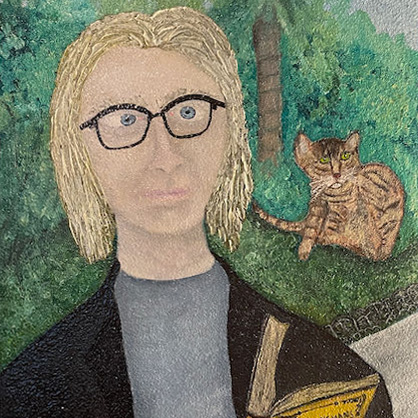
In this introduction to literary studies course, we will be reading poetry and fiction from fifteen British and American writers, with a focus on modern and contemporary literature. Among the authors included are Lucia Berlin, James Purdy, Somerset Maugham, Sylvia Plath, Patricia Highsmith, Gwendolyn Brooks, and Danez Smith. The course will emphasize issues of genre, reader-response, alternative worldviews, existential awareness, imaginative sympathy, and the relationship of lived experience to artistic expression. The coursework will consist of weekly short-answer quizzes and three assigned essays. This course will be taught via zoom online. The lecture-discussions also will be recorded and posted under the zoom tab on Canvas and it is possible to take the course entirely as an asynchronous course at your own pace, although bonus points will be available to those who attend and take the quizzes in real time.
Literary Theory
LIT 3213.002|J. Ulin|Req.|Distance|Online Live Lecture|R|7:10pm–10:00pm
This required course for the English major will introduce you to some of the major theoretical approaches to the interpretation of literature. The course will demonstrate how literary theory can be used as a tool illuminating aspects of the text. Throughout the semester, we will explore case studies pairing works of literature with key theories, attending to what these approaches reveal and conceal. In addition to practicing these skills through written analysis, you will present a conference style paper in response to a current call for papers in the field of literary studies. At the end of the semester, you should feel comfortable not only identifying the interpretive strategies of the major theoretical schools but applying them to texts.
Intro to Literary Studies
ENG 3822.005|T. Taylor|Req.|Boca|In-Person|W/F|11:00am–12:20pm
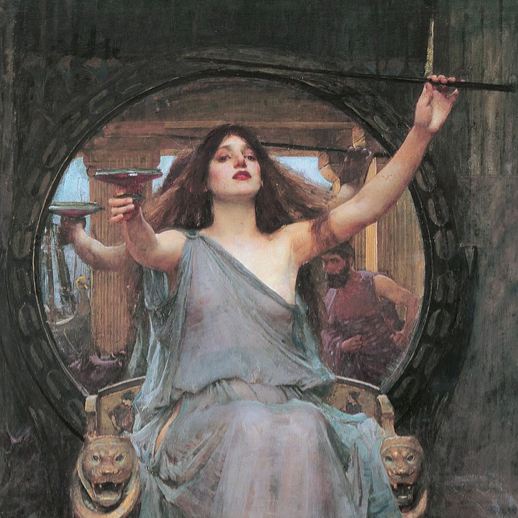
Together, we’ll delve into myths and fairytales from around the world as well as retellings and adaptations of those stories. We’ll look at a range of myths and fairytales sources, from stories many are familiar with like Snow White or the story of Circe and Odysseus, to stories that may be less familiar like that of the Maya Hero Twins or the Celtic Tuatha Dé Danann. We will also compare contemporary adaptations of these myths and fairytales across time periods from Victorian era poetry to contemporary science fiction and fantasy. Most of our readings will be short stories and poetry, but we will also read two novels: Mary Shelley’s Frankenstein and Silvia Moreno-Garcia’s Gods of Jade and Shadow.
Literary Theory
LIT 3213.001|I. MacDonald|Req.|Boca|In-Person|W/F|12:30pm–1:50pm
In some senses as much a philosophy class as a literature class, this course will introduce you to the names and theories attached to many of the approaches currently taken to approaching literature from an analytic perspective. While the various theorists, philosophers, linguists, and psychoanalysts may not, in their own time, have had literature at the front of their minds, later literary scholars would borrow or adapt their theories: to such an extent that anyone studying literature at the graduate level today would be expected to be at least familiar with their basic arguments and how they might be used in a critical context. As such, we will read both the birth and development of more formalist literary criticism—from Matthew Arnold in the nineteenth century through the didactic-, New Critical-, and archetypal formalisms of the mid-twentieth century as well as works by seminal figures including Marx, Saussure, Freud, Benjamin, Lacan, Foucault, and Derrida whose inquiries surrounding language and the social contexts of literature continue to inform and determine approaches to literary analysis to this day.
***************

African-Amer Lit 1895-Present
AML 4607.001|S. Dagbovie-Mullins|Cat 1|Distance|Online Live Lecture|W|4:00pm–6:50pm
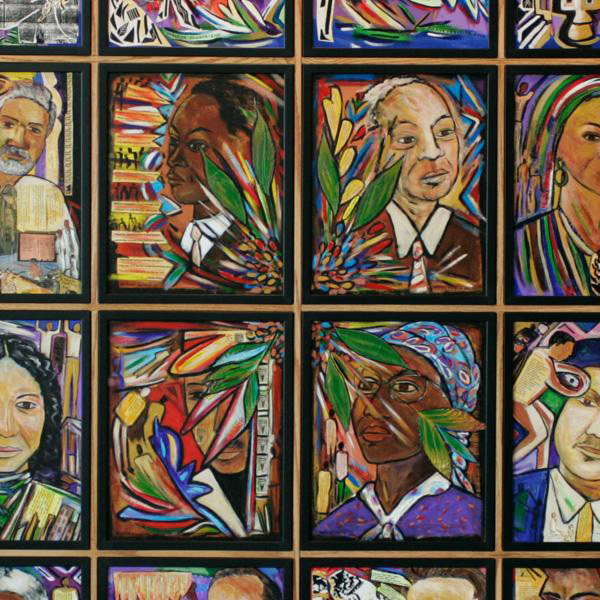
This class will pursue a chronological examination of African American literature, considering the historical, cultural, and social contexts that have shaped African American literary production. We will explore various literary movements (such as the Harlem Renaissance, the Protest Period, and the Black Arts Movement) and discuss ongoing debates: What is black writing? What is the role of the African American writer? What is the function of African American literary art? How does one define a black aesthetic?
This course meets virtually via Zoom. Please note that each student is required to have their camera on during class (4-6:50 pm).
Postcolonial Literature
LIT 4233.001|S. Lettman|Cat 1|Boca|In-Person|W/F|11:00am–12:20pm
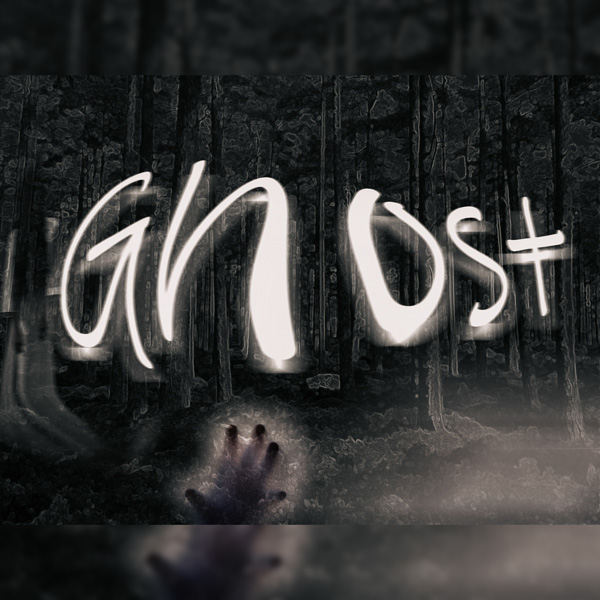
As a multidisciplinary field of scholarship and literature, postcolonial studies reevaluates not only the entrenched discourses but also the complex power relations and its intersections with culture, race, language, gender, and politico-economics.
This class course will focus on the significance of the ghost, its symbolic meaning in postcolonial literary texts from Africa, Asia, and the Americas. Postcolonial scholars and writers in this field highlight the displacement that result from histories of conquest, such as slavery and colonialism, and other forces of modernity, including the ruptures that occur from the emergence of new national identities with the ever-shifting global discourses and reconfigurations of political boundaries.
Florida Women Writers
AML 3264.001|S. Dagbovie-Mullins|Cat 1|Boca|In-Person|T/R|11:00am–12:20pm
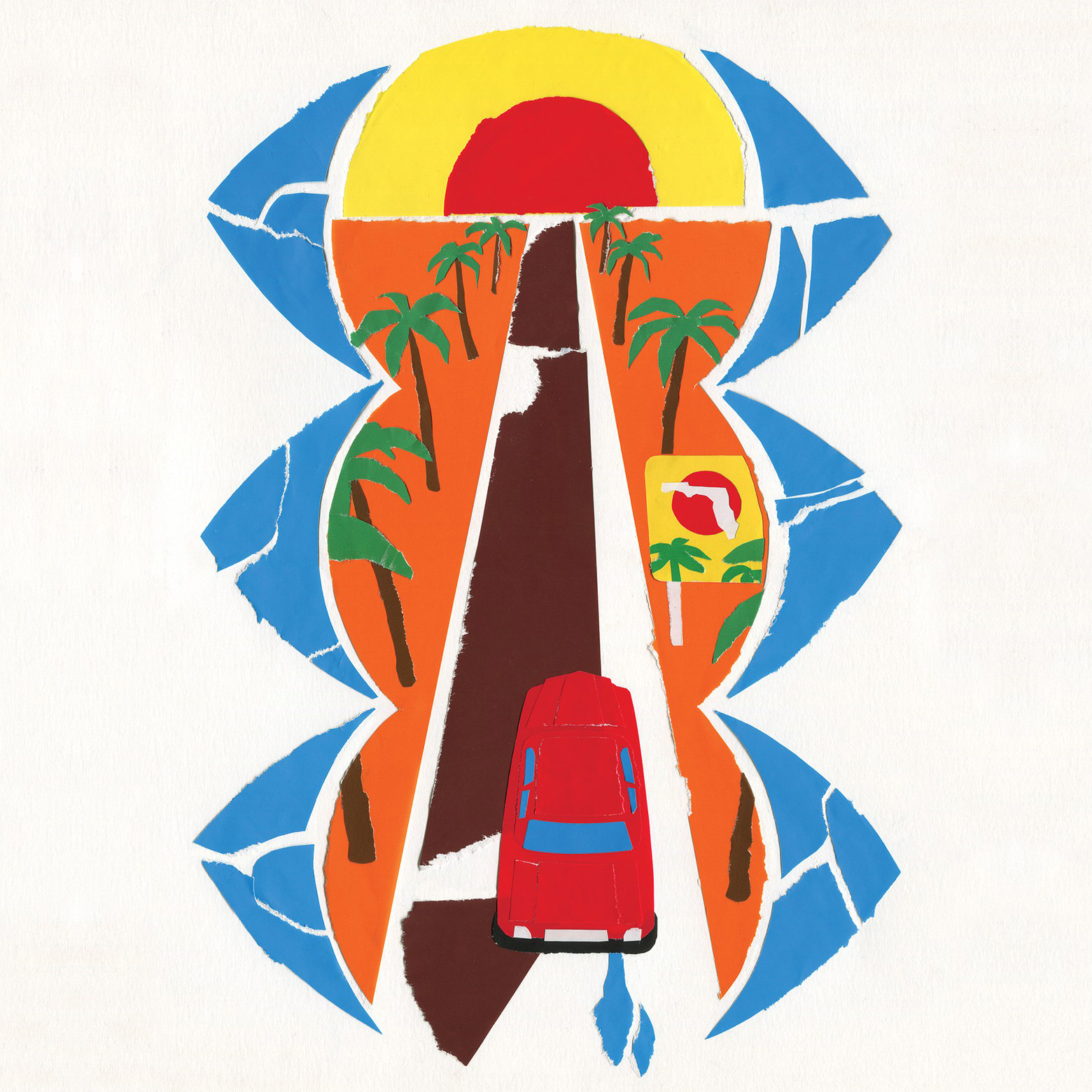
The course examines primarily fiction by Florida women writers and pays close attention to the ways place and gender inform their writing. We will read several texts by Floridians that take place in Florida and other texts simply written by Floridians. Drawing on ecocriticism and feminist theory, we will consider the role of gender, nature, race, class, ethnicity, and sexuality in Florida women’s writing.
As we read texts by writers with different social, racial, and geographic roots, we will consider the question: what constitutes a Florida woman writer?
US Latino/a Literatures
AML 4630.002|D. Medina|Cat 1|Boca|In-Person|T/R|2:00pm–3:20pm
This course explores U.S. LatinX literatures with emphasis on Cuban-American, Puerto Rican and Mexican-American traditions. Over the course of the term, we will explore themes such as exile, resistance, assimilation, and transculturation. We will also explore the power of literature in shaping political presence and identity formation and will engage critical discussions on race, ethnicity, gender, and sexuality. Students will attend to the dynamic interplay between literary forms such as autobiography, poetry, novels, film, &c. and intuit how these literary forms contribute to the vibrant portrayal of U.S. Latinidad. By reading works by authors such as Christina Garcia (Cuban), Arturo Islas (Chicano), Natalie Diaz (Mestiza), and Junot Diaz (Dominican), students will gain an understanding of the diverse voices that shape the Latino/a/x experience in America.
Women and Literature
LIT 4383.001|C. Thomas|Cat 1|Boca|In-Person|W/F|12:30pm–1:50pm
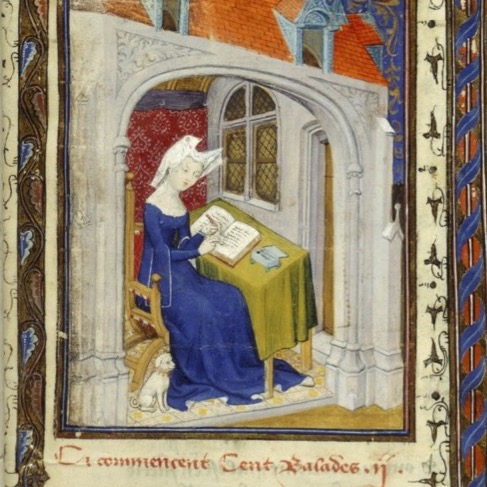
In this course, we'll explore medieval women through historical documents that demonstrate the "standard" life cycles of women while questioning the very notion of a standard; early medieval penitentials & secular law codes; representations of “monstrous” women, such as Maria Dahvana Headley’s new translation of Beowulf; ancient & medieval antifeminist writings that heavily influenced not only medieval culture but also our culture today; two of Geoffrey Chaucer’s pilgrims from The Canterbury Tales; a French proto-feminist treatise by Christine de Pizan; some religious prose and poetry by and for women, including the story of a Black Egyptian saint and a transgender saint; and more! Medieval women are not exactly what you expect, and sometimes they’re exactly what you expect. Just like women today, however, there is no one mold, nor should there be.
**************************

Literature and Environment
LIT 4434.001|S. Balkan|Cat 2|Boca|In-Person|T/R|12:30pm–1:50pm
This course will explore the intersecting histories of literary expression, landscape ideology, colonialism, and historical trauma. We shall question popular understandings of “environment” and “nature” that have historically privileged such aesthetic traditions as “wilderness” over the economic imperatives of survival, or habitability; and we shall, consequently, consider competing notions of “environmentalism.” We shall also query how, in an era marked by cataclysmic shifts to our global climate, we can begin to think collectively about the fate of our species without ignoring the long history of economic development that has rendered postcolonial states more vulnerable to the devastating impacts of climate change. Finally, we shall consider the virtue of artistic expressions that communicate our collective grief while also imagining possible worlds beyond the inevitable collapse of current global energy systems.
American Literature from 1865
AML 2020.001|T. Hagood|Cat 2|Boca|In-Person|T/R|12:30pm–1:50pm
The Civil War brought tremendous changes to the United States—changes that still shape our world over a hundred years later. In this course, we will read the literary texts that played a role in dramatizing, defining, and engaging with foundational issues of life, meaning, and culture in the experience of being American. We will read works by Realists, Modernists, and writers of the contemporary moment, with particular attention given to the aftermath of the Civil War, the era between the World Wars, the Civil Rights Movement of the 1960s, and our present-day moment.
max of 2 courses (6 credits) can be in lower division for the entire major
Amer Lit:19th Cent Traditions
AML 4223.001|T. Hagood|Cat 2|Boca|In-Person|T/R|11:00am–12:20pm
In this 4000-level course, we will focus on representative texts of the major movements in American literature in the 1800s. These movements include Romanticism, slave narratives, the distinct poetry of the era, and various aspects of Realism, including Naturalism and Local Color. Attention will not be given so much to authors themselves as to the philosophies of culture and writing they promulgated—traditions that played a role in the tumultuous nineteenth century, when the nation’s identity as being formed in a maelstrom of conflict.
Fantasy Literature
LIT 3312.001|T. Miller|Cat 2|Boca|In-Person|T/R|2:00pm–3:20pm
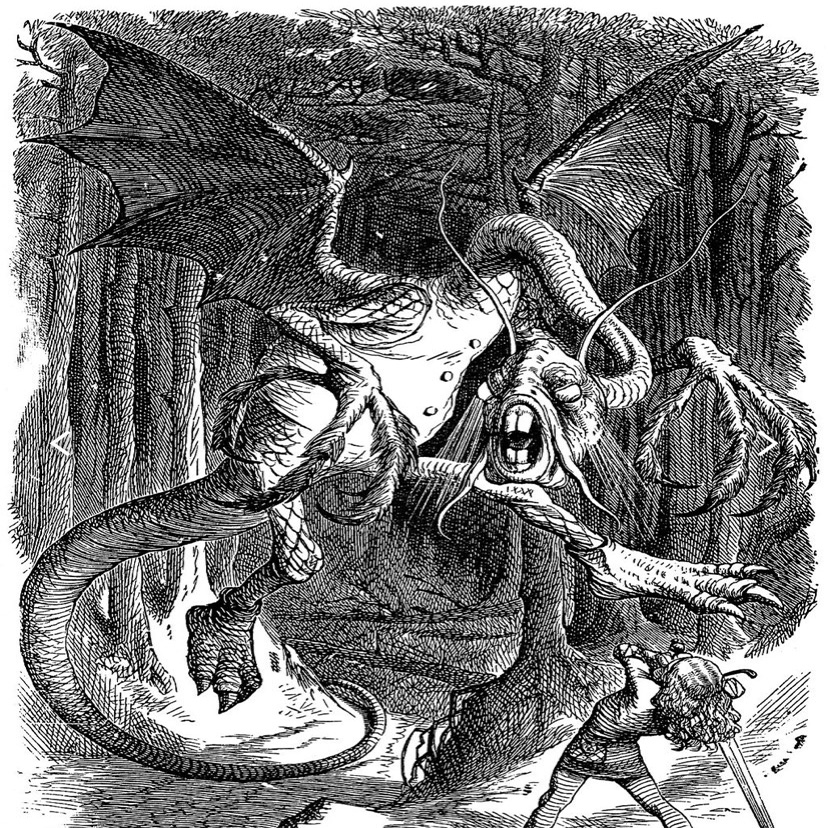
Elves, dragons, and unicorns -- oh my! Readers of The Lord of the Rings, players of Dungeons & Dragons, or viewers of Game of Thrones may feel that they have a sense of the common characteristics of fantasy literature and what we are likely to encounter as visitors to a fantasy world. But how should we define the genre more specifically, and how should we understand its history? This course aims to introduce you to some of the major authors of fantasy literature from the past century or so, as well as familiarize you with the current state of the genre. We will investigate how, for example, women and writers of color such as Ursula K. Le Guin and Nnedi Okorafor have found fantasy a unique vehicle for expressing their experiences despite the previously limited access of marginalized people to the field. We will also be discussing the fantastic across other media including film and the visual arts.
Literature of Adolescence
LIT 3333.002|T. Taylor|Cat 2|Boca|In-Person|W/F|12:30pm–1:50pm

Science fiction and fantasy are dominating young adult and children’s literature sales. Books like The Hobbit, Harry Potter, and The Hunger Games continue to dominate sales of books marketed for those 12-18 years old. In this class, we are going to ask: what is it about science fiction and fantasy that makes it sell so well in the young adult and children’s market? Interestingly, studies have suggested that 80% of YA literature is purchased and read by adults, so it isn’t simply that the genres are well-suited to the 12-18 demographic. What is it about YA and middle-grade science fiction and fantasy that captures the imagination? Together, we’ll look at some of the most recent hits in children’s and young adult sf/f to consider not only what makes them so popular, but also their relevance to literary studies and use in the classroom.
British Literature Since 1798
ENL 2022.001|J. Ulin|Cat 2|Distance|Fully Online
While yet a boy I sought for ghosts, and sped
Through many a listening chamber, cave and ruin,
And starlight wood, with fearful steps pursuing
Hopes of high talk with the departed dead.
—“Hymn to Intellectual Beauty,” P.B. Shelley
Major works, writers and movements of modern British literature with a focus on ghosts, the gothic, and the supernatural.
max of 2 courses (6 credits) can be in lower division for the entire major
Literature And Film
ENG 4114.001|R. Adams|Cat 2|Ft. Lauderdale|In-Person|M|7:10pm–10:00pm
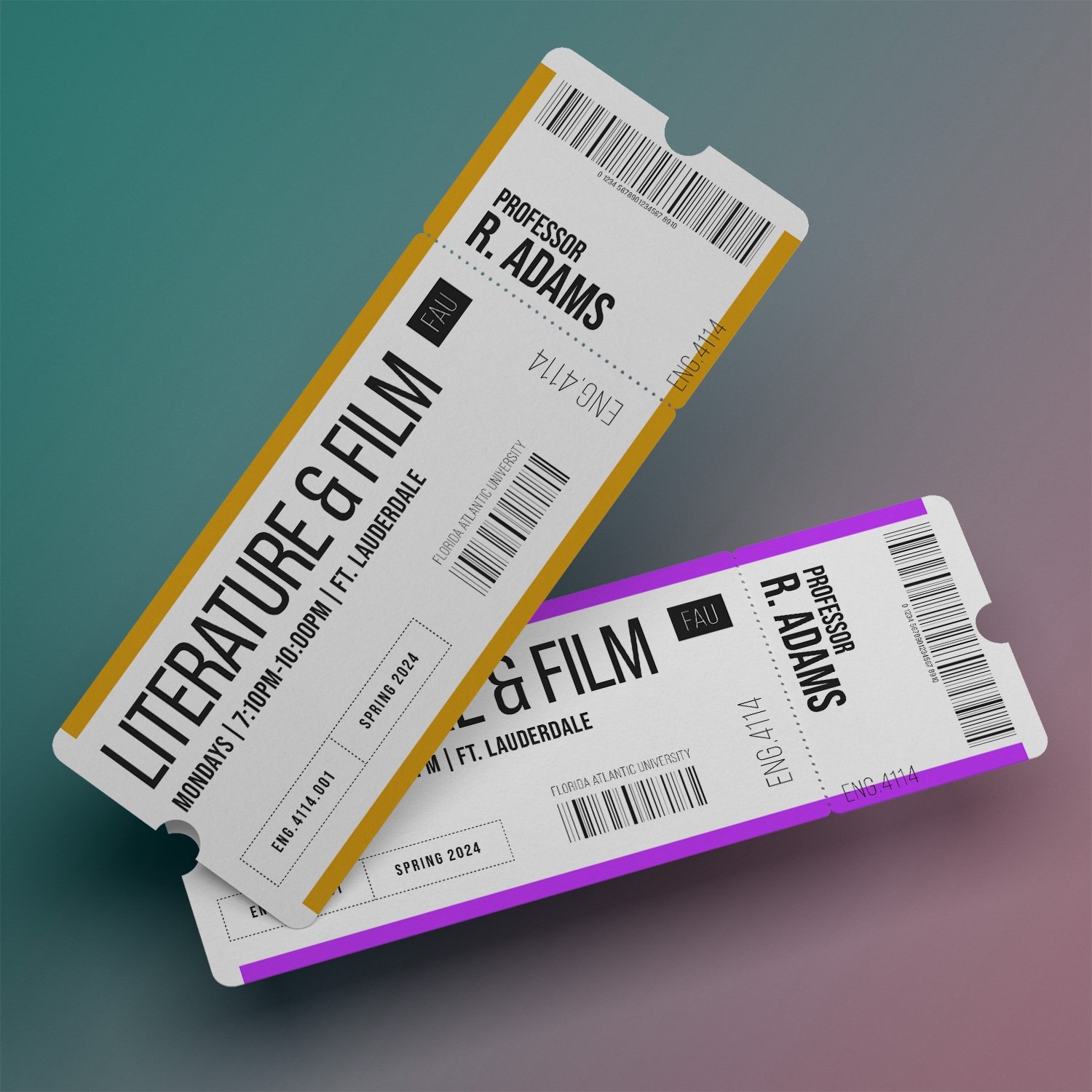
In this course, we will be focusing on the genre of noir in both literature and film. We will be viewing six noir films and reading and discussing the six noir novels that they are adapted from. The focus in the course will be on the differing modes of expression afforded by film and fiction and the differing ways in which we interact emotionally and intellectually with each as viewers and readers. The course will begin with a discussion of two critical essays that consider the noir genre in regard to ethics and existentialism, topics that we will consider throughout the course. All of the films will be screened in the classroom with short discussions after. For the classes in which we discuss novels, we will meet on zoom for live lecture-discussions. Course assignments will include three out-of-class essays and weekly end-of-class quizzes.
17th Century Literature
ENL 4221.001|C. Chenovick|Cat 2 (pre-1800)|Boca|In-Person|W/F|9:30am–10:50am
The seventeenth century in England was a time of tremendous upheaval and vibrant and varied literary output. The “scientific revolutions” of the era laid out early blueprints for what we know as “scientific method,” while European exploration of the Americas seemed to open up new worlds promising untold riches even as they resulted in problematic and violent encounters. In England, there were political revolutions and religious turmoil, while in in the domestic sphere the roles of the sexes were hotly debated. This course will examine the impact of these forces on the poetry, prose, and drama of the period, exploring work by the stunning so-called “metaphysical” poets Donne, Herbert, and Crashaw, political and religious writing by women, plays by Tom Ford and Aphra Behn, and selected travel writings, memoirs, and proto-science fiction texts.
Shakespeare
ENL 4333.001|C. Chenovick|Cat 2 (pre-1800)|Boca|In-Person|W/F|12:30pm–1:50pm
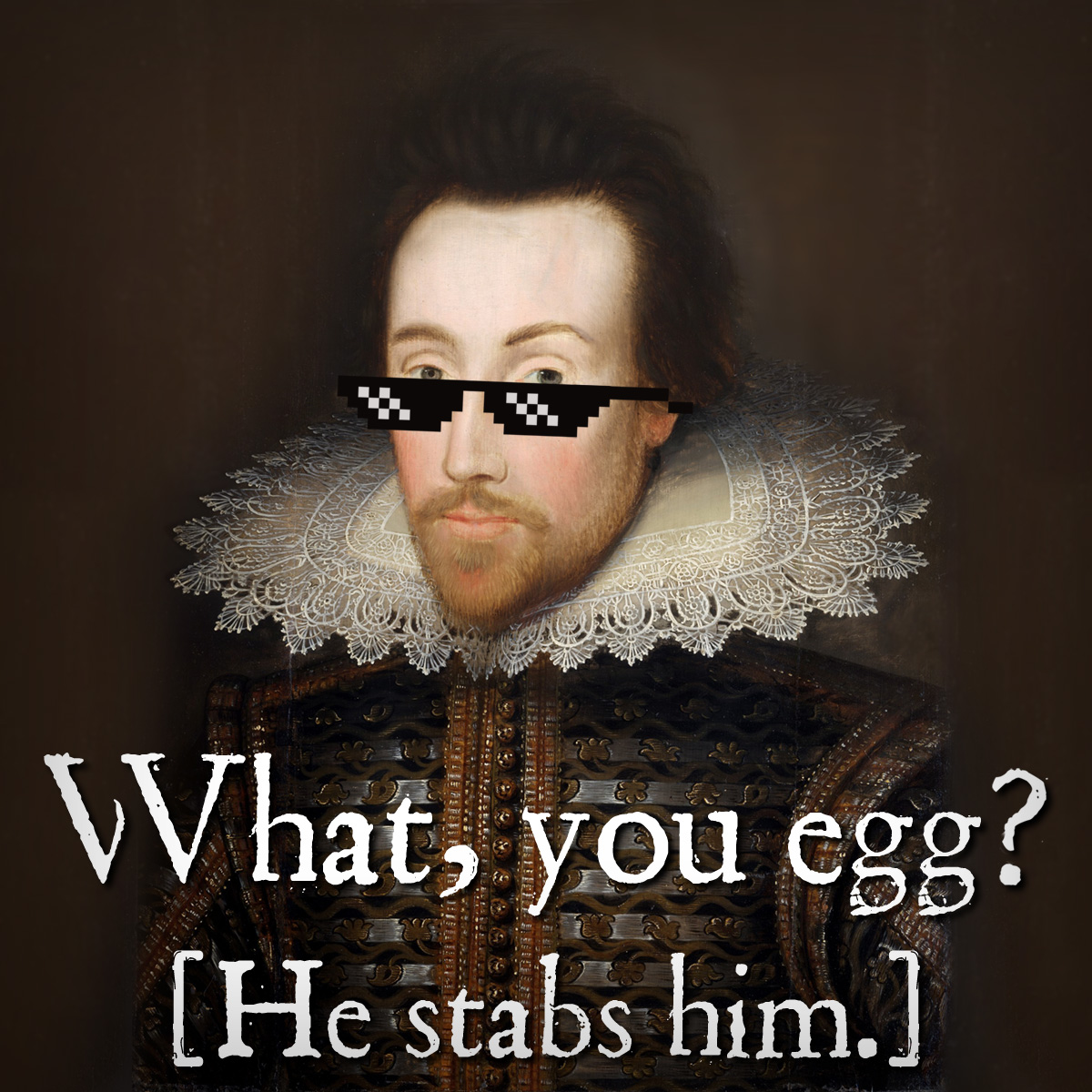
This class focuses on the works and cultural contexts of William Shakespeare. We will focus on a selection of his sonnets and four of his plays with strong points of connection to key moral and social issues that continue to matter in our own day. As we consider how Shakespeare engages with issues of gender and sexuality, power and consent, race, and colonialism, we will trace out how Shakespeare and his contemporaries helped shape present-day beliefs and discourses around these issues. Along the way, we will delve into the historical contexts and documents that shape Shakespeare’s works and will engage with critics and contemporary sources that help us question the role of these plays in our own day. We will also study Toni Morrison’s Desdemona as an example of a present-day author talking back to Shakespeare through a creative engagement with his characters and themes.
Chaucer
ENL 4311.001|E. Stockard|Cat 2 (pre-1800)|Distance|Online Live Lecture|T|4:00pm–6:50pm
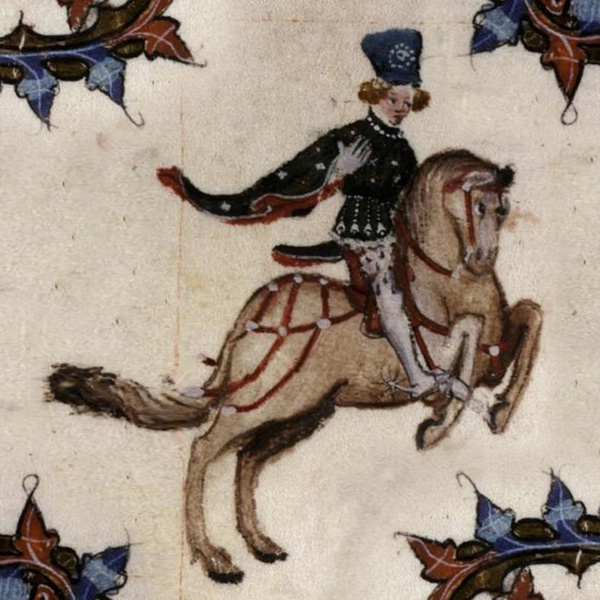
This course provides students with an opportunity for intensive study of selections from The Canterbury Tales. We will be looking at how the collection of tales, each told by a different pilgrim, places a number of opposing perspectives in motion. Often-intertwined topics will include love, war, power, sex, money, and religion. Among the highlights are The Knight’s Tale, The Miller’s Tale, and The Wife of Bath’s Prologue, but you are invited by Chaucer to choose the best tale. As we accompany Chaucer’s pilgrims on their journey, students will develop skill in reading Middle English and become familiar with some historical contexts of Chaucer’s writing—social as well as literary.
Renaissance Literature
ENL 4220.001|E. Stockard|Cat 2 (pre-1800)|Distance|Online Live Lecture|R|4:00pm–6:50pm
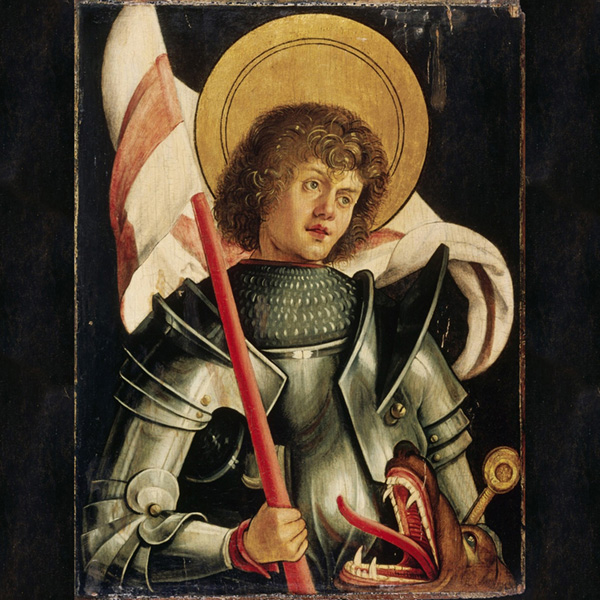
In tracing the development of a literary tradition in Tudor England, we will look at a range of genres, including sermons, literary theory, the sonnet sequence, and pastoral, erotic, and satirical poetry. The centerpiece will be The Fairie Queene by Edmund Spenser, an allegorical romance set in an Arthurian fantasy world of elves, giants, magicians, and dragons. Along with Spenser, featured authors will be Sir Philip Sidney and William Shakespeare. The literature will be discussed in the context of tumultuous religio-political events that took the lives of some of the writers we will study.
*******************

Poetry Workshop 1
CRW 4310.001|V. Fedden|Cat 3|Boca|In-Person|T/R|11:00am–12:20pm
Offers the fundamentals of writing and workshopping original poetry. Students will practice using poetic devices, techniques of poetic form; and expand their poetic vision with image, metaphor and analogy while writing a variety of free verse and form poems. Course may be repeated for credit once.
RI: Honors Research
ENG 4910.001|R. Fox|Cat 3|Boca|In-Person|F|2:00pm–4:40pm
Honors Research builds upon the work completed in Honors Seminar and facilitates the writing of a 20-40 page honors thesis that makes an original intellectual contribution to the discipline. You will continue your training in identifying, reading, evaluating, and contextualizing literary scholarship while adhering to the standards and best practices of research-level literary scholarship. The course may include library research visits, presentations on different research and analytical methodologies, and peer editing workshops. We will work through successive drafts of the thesis in workshops focused on content, style, structure, and tone. Throughout this course, you will be strengthening your argument in dialogue with existing scholarship in order to produce a thesis that can be communicated effectively in its written form and in a conference-style presentation.
Creative Writing
CRW 3010.005|A. Furman|Cat 3|Boca|In-Person|T/R|2:00pm–3:20pm
This is an introductory course on the writing of literary short fiction and poetry. From the course catalog: “Guidance and criticism for beginners in writing prose fiction and poetry.” The course will help students to further understand and master the elements of fiction and poetry through: writing of original work, focused readings on craft, workshopping of peer work, and analysis of successful, published stories and poems. The course offers students the rare opportunity in college to create, learn from, and enjoy a community of writers.
Structure of Modern English
LIN 4680.002|W. Kelly|Cat 3|Boca|In-Person|W/F|11:00am–12:20pm
Using elaborate tree diagramming and Chomskyan linguistic theory, the course will teach students to describe the structure of Modern English sentences. The textbook is Max Morenberg’s Doing Grammar.
Studies in Writing & Rhetoric
ENG 4020.001|S. Klein|Cat 3|Boca|In-Person|T/R|2:00pm–3:20pm
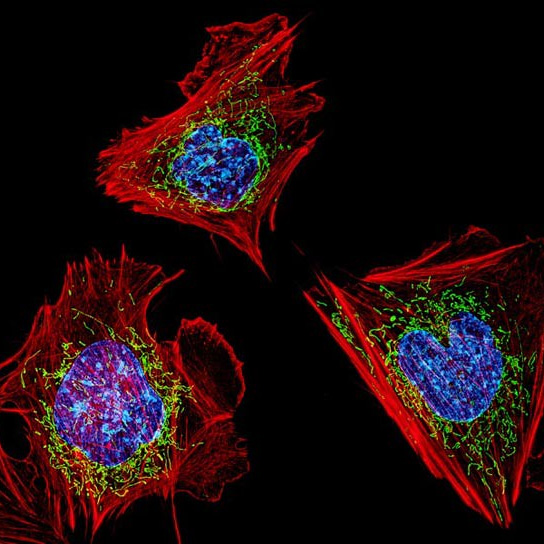
How is science rhetorical? How does language function to communicate scientific knowledge? How is scientific knowledge made available to the public? These are some of the questions we will discuss, investigate, and debate in this course.
We will explore how scientists and rhetoricians seek to understand and explain how language and persuasion function to communicate scientific knowledge to scientists and to the public. We will closely read works such as Thomas Kuhn’s “The Structure of Scientific Revolutions” where he traces the seismic shifts that have led scientists to change the questions they ask, the methods by which they investigate problems, and tools by which they unearth the natural world.
By the end of the semester, you will have gained a deeper understanding of how the domains of rhetoric and science differ and overlap, how scientific communication has changed over time, and how professional science translates into public discourse.
Creative Writing
CRW 3010.004|M. Criscuolo|Cat 3|Boca|In-Person|W/F|12:30pm–1:50pm
Guidance and criticism for beginners in writing prose fiction and poetry.
Creative Writing
CRW 3010.006|J. Schwartz|Cat 3|Distance|Online Live Lecture|W|7:10pm–10:00pm
Guidance and criticism for beginners in writing prose fiction and poetry.
Fiction Workshop 1
CRW 4120.001|J. Schwartz|Cat 3|Boca|In-Person|T/R|4:00pm–6:50pm
Concentrates on essentials of the short story form through emulations of varied modern authorial styles. Point of view, narrative form, voice, creating characters, tone and atmosphere are some of the topics covered. Students write several stories, revise and critique. Reading consists of single-author collections and anthology selections. Course may be repeated for credit once.
Principles of Research Writing
ENC 4138.001|TBA|Cat 3|Boca|In-Person|W/F|9:30am–10:50am
Provides an introduction to communicating research through writing.
Advanced Exposition
ENC 3310.|L. Salisbury|Cat 3|Distance|Fully Online
Advanced Exposition ENC 3310 focuses on the study and practice of writing by building on skills developed in lower-level composition courses. As a class, we will read and write about ideas, myths, and experiences of writing as well as engage with common discussions in writing studies. We will begin by exploring writing experiences in our own lives before considering current debates about writing. Through discussing, investigating, and writing about writing we will gain knowledge about how writing works to grow as stronger, more confident, and more rhetorically aware writers. This course is especially well-suited for English majors, Education majors, and students pursuing the Certificate in Professional and Technical Writing.
Professional Writing
ENC 3213.023|N. Chasteen|Cat 3|Boca|In-Person|W/F|9:30am–10:50am
ENC 3213.026|N. Chasteen|Cat 3|Boca|In-Person|W/F|11:00am–12:20pm
Professional writing is a vital skill for college students inside and outside of academics. This course will prepare students to write for professional settings with a heavy emphasis on practical application of skills, such as networking, writing, and collaborative assessment (peer review). This course uses open access materials and resources. Students will gain knowledge about their own professional goals and those of their peers.
Professional Writing
ENC 3213.024|J. Cohen|Cat 3|Distance|Fully Online Class
ENC 3213.025|J. Cohen|Cat 3|Distance|Fully Online Class
Prepares the student to write professionally for audiences within and outside a corporation or nonprofit enterprise. Proofreading skills stressed.
Professional Writing
ENC 3213.027|P. Fox|Cat 3|Distance|Fully Online Class
ENC 3213.028|P. Fox|Cat 3|Distance|Fully Online Class
This course is designed for students who want to develop writing skills needed in the workplace. After targeting workplace audiences, students will complete an array of assignments: memos, instructions, proposals, formal reports, etc. Topics for these assignments will relate to contemporary trends in the workplace. Students will learn how to format pages, incorporate visuals into their writing, and give a collaborative, formal report based on their written assignments.